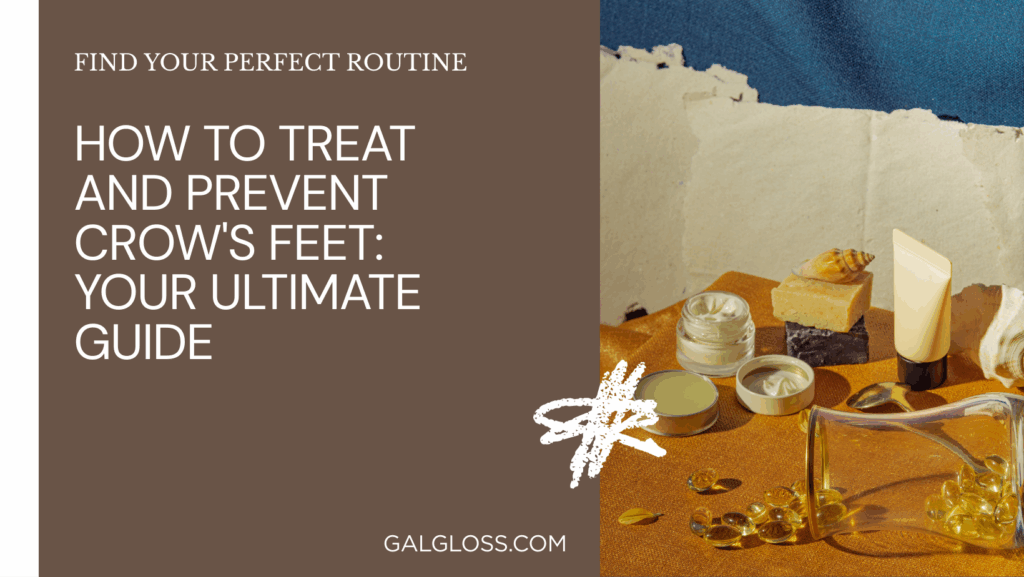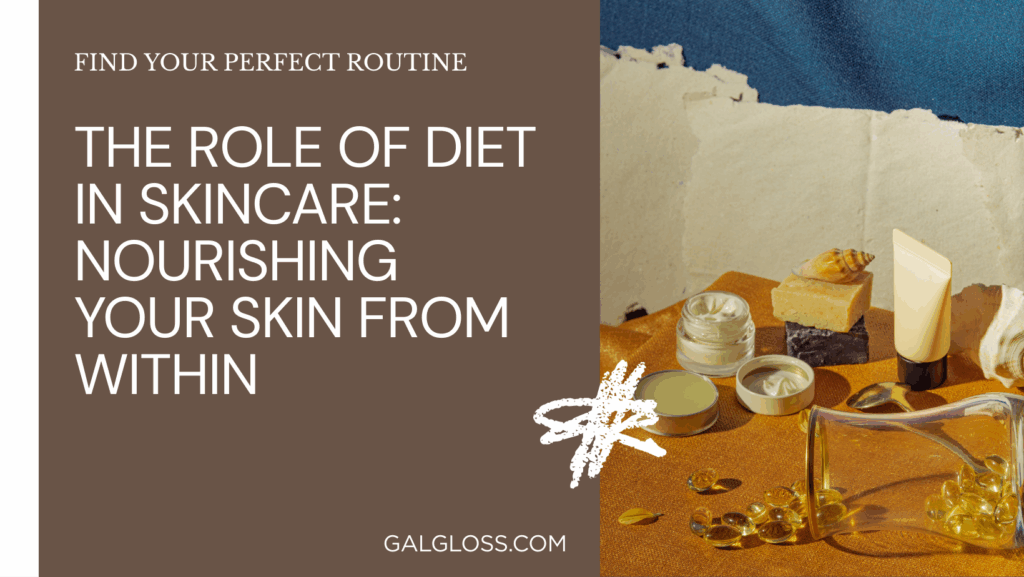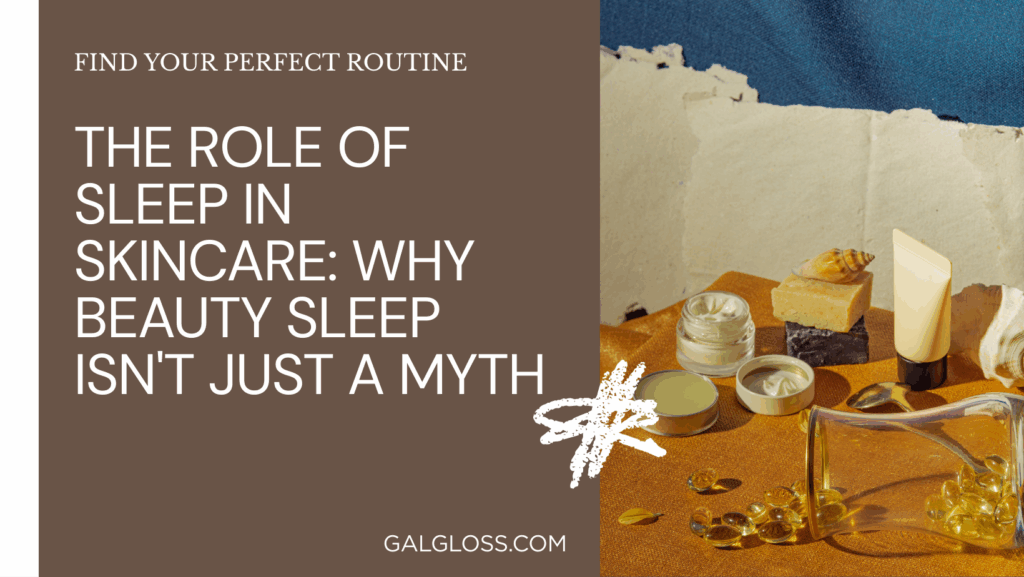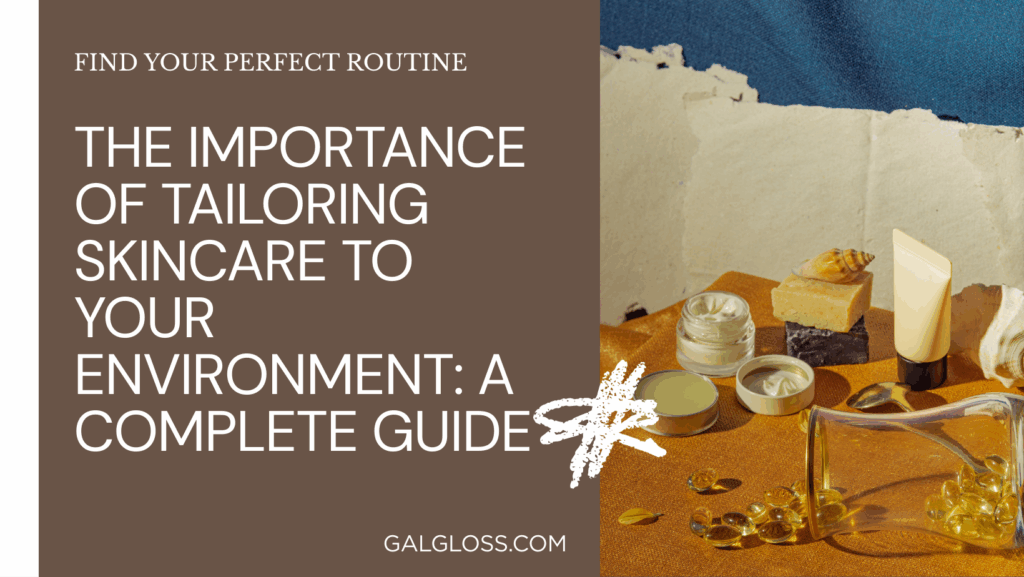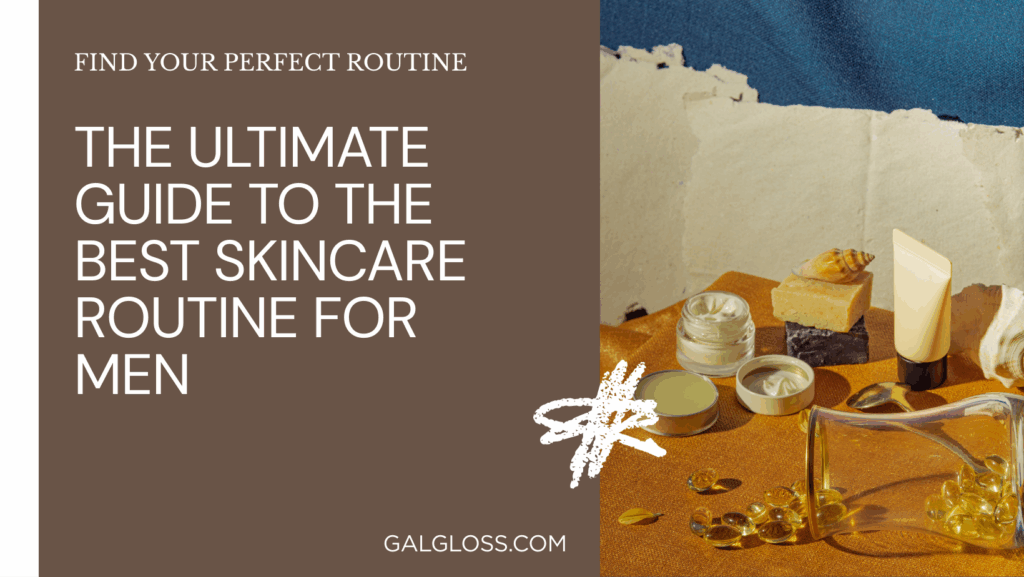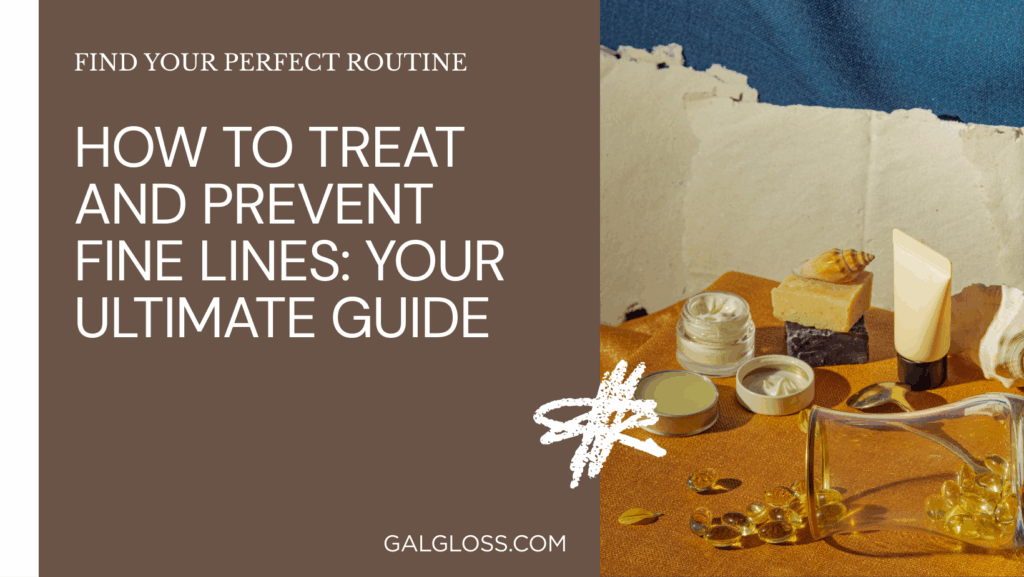Ever heard of retinoids? If you’re into skincare, chances are you’ve come across this buzzword. But what exactly are they, and why is everyone raving about them?
Retinoids are like the Swiss Army knife of skincare. They’re derivatives of vitamin A that work wonders on your skin. Think of them as tiny miracle workers, diving deep into your skin cells and telling them to shape up and act young again.
But why all the hype? Well, retinoids aren’t just a passing fad. They’ve been around for decades, backed by tons of research. Dermatologists love them, skincare enthusiasts swear by them, and even skeptics are starting to take notice.
In this guide, we’ll peel back the layers (pun intended) on retinoids. We’ll explore how they work, their benefits, and how to use them without turning your face into a tomato. Whether you’re battling acne, fighting wrinkles, or just want to give your skin a boost, retinoids might be the answer you’ve been looking for.
Ready to dive in? Let’s get started on your journey to understanding retinoids and unlocking their benefits for your skin!
The Science Behind Retinoids: How Do They Work?
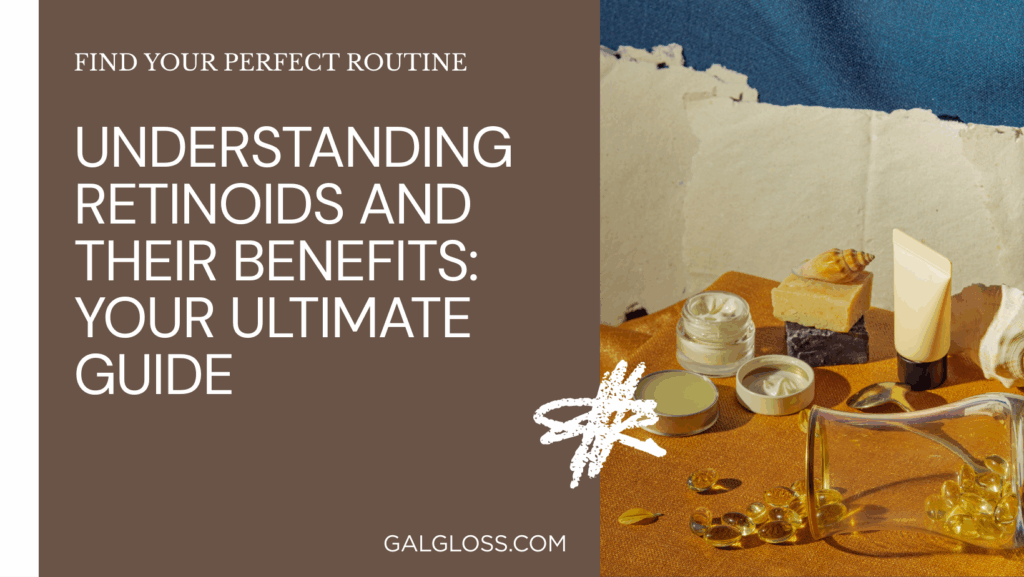
So, what’s the deal with retinoids? How do these little molecules pack such a punch?
Retinoids are like personal trainers for your skin cells. They bind to specific receptors in your skin, kickstarting a whole chain of reactions. Here’s what happens:
- Cell Turnover: Retinoids speed up your skin’s natural exfoliation process. Out with the old, in with the new!
- Collagen Boost: They stimulate collagen production, giving your skin more bounce and elasticity.
- Gene Expression: Retinoids can actually alter gene expression, telling your skin cells to behave more like younger, healthier versions of themselves.
- Pore Unclogging: They help keep your pores clear, reducing the chances of acne breakouts.
But not all retinoids are created equal. Here’s a quick rundown of the different types:
- Retinol: The most common over-the-counter form. It’s gentler but takes longer to see results.
- Retinaldehyde: A step up from retinol, it’s more potent but still available without a prescription.
- Tretinoin: This is the big guns, available by prescription only. It’s the most potent and fast-acting.
- Adapalene: Another prescription retinoid, particularly good for acne.
- Tazarotene: The strongest prescription retinoid, often used for severe acne or psoriasis.
Benefits of Retinoids: What Can They Do for Your Skin?
Now that we know how retinoids work, let’s talk about why you might want to add them to your skincare routine. The benefits are pretty impressive:
1. Anti-Aging Effects
Retinoids are like a time machine for your skin. They can:
- Reduce fine lines and wrinkles
- Improve skin elasticity
- Even out skin tone
- Boost collagen production
2. Acne Treatment
Got pimples? Retinoids to the rescue! They:
- Unclog pores
- Reduce inflammation
- Prevent new breakouts
- Help fade acne scars
3. Skin Texture Improvement
Want baby-smooth skin? Retinoids can help by:
- Increasing cell turnover
- Smoothing out rough patches
- Minimizing the appearance of pores
4. Hyperpigmentation Reduction
Dealing with dark spots? Retinoids can:
- Fade sun damage
- Even out skin tone
- Reduce the appearance of age spots and melasma
How to Use Retinoids: Your Step-by-Step Guide
Ready to give retinoids a try? Here’s how to start your retinoid journey without irritating your skin:
- Start slow: Begin with a low concentration (like 0.01% retinol) and use it just once or twice a week.
- Apply at night: Retinoids can make your skin more sensitive to sun damage, so nighttime use is best.
- Use a pea-sized amount: A little goes a long way with retinoids.
- Wait after washing: Give your skin 20-30 minutes to dry completely after cleansing before applying retinoids.
- Moisturize: Follow up with a hydrating moisturizer to combat potential dryness.
- Be patient: It can take 6-12 weeks to see results. Don’t give up!
Precautions and Side Effects
Retinoids are powerful stuff, and they can come with some side effects, especially when you’re just starting out:
- Redness
- Dryness
- Peeling
- Increased sensitivity to sun
Don’t panic if you experience these – it’s called the “retinization” period, and it usually subsides after a few weeks. If irritation persists, talk to a dermatologist.
Choosing the Right Retinoid Product: OTC vs. Prescription
So, should you go for an over-the-counter (OTC) retinoid or get a prescription? Here’s a quick comparison:
| OTC Retinoids | Prescription Retinoids |
| Gentler | More potent |
| Slower results | Faster results |
| Good for beginners | Better for stubborn issues |
| Less irritation | More likely to cause irritation |
| Widely available | Require a doctor’s visit |
When choosing a retinoid product, consider:
- Your skin type and concerns
- Your budget
- How quickly you want to see results
- Your tolerance for potential side effects
Retinoids vs. Other Skincare Ingredients: How Do They Stack Up?
Retinoids aren’t the only skin-loving ingredients out there. Let’s see how they compare to some other popular options:
Retinoids vs. AHAs (Alpha Hydroxy Acids)
- Retinoids: Work deeper in the skin, better for anti-aging and acne
- AHAs: Work on the surface, great for exfoliation and brightening
Retinoids vs. BHAs (Beta Hydroxy Acids)
- Retinoids: More versatile, good for anti-aging and acne
- BHAs: Specifically target oil and acne, good for oily skin types
Retinoids vs. Vitamin C
- Retinoids: Better for cell turnover and collagen production
- Vitamin C: Excellent antioxidant, great for brightening and protection
Pro tip: You can actually use these ingredients together for maximum benefits – just not at the same time of day. Try vitamin C in the morning and retinoids at night.
Common Myths About Retinoids: Let’s Bust Them!
There’s a lot of misinformation out there about retinoids. Let’s clear up some common misconceptions:
- Myth: Retinoids thin your skin Truth: They actually thicken the deeper layers of your skin
- Myth: You can’t use retinoids in summer Truth: You can, just be diligent with sunscreen
- Myth: Retinoids cause sun sensitivity Truth: They make you more susceptible to sunburn, but don’t cause sensitivity themselves
- Myth: Higher percentage always means better results Truth: Sometimes a lower percentage used consistently is more effective
- Myth: Retinoids and retinol are the same thing Truth: Retinol is a type of retinoid, but not all retinoids are retinol
FAQs About Retinoids: Your Burning Questions Answered
Still have questions? We’ve got answers:
- Q: Can I use retinoids if I have sensitive skin? A: Yes, but start with a low concentration and build up slowly.
- Q: How long does it take to see results from retinoids? A: It usually takes 6-12 weeks to see noticeable improvements.
- Q: Can I use retinoids while pregnant or breastfeeding? A: It’s best to avoid retinoids during pregnancy and breastfeeding. Consult your doctor for alternatives.
- Q: Can I use retinoids with other active ingredients? A: Yes, but be careful. Some ingredients (like vitamin C) are best used at different times of day.
- Q: Do I need to use sunscreen with retinoids? A: Absolutely! Retinoids can make your skin more susceptible to sun damage, so daily sunscreen is a must.
Conclusion: Are Retinoids Right for You?
Whew! We’ve covered a lot of ground, haven’t we? Let’s recap the key points:
- Retinoids are vitamin A derivatives that can work wonders for your skin
- They offer benefits like anti-aging, acne treatment, and skin texture improvement
- Start slow and be patient – results take time but are worth the wait
- Choose between OTC and prescription options based on your needs and skin tolerance
- Always use sunscreen when using retinoids
So, are retinoids right for you? If you’re looking to up your skincare game, fight signs of aging, or battle acne, they might be just what you need. Remember, everyone’s skin is different, so what works for your best friend might not work for you.
The best approach? Start with a low concentration, be consistent, and listen to your skin. And if you’re ever in doubt, don’t hesitate to chat with a dermatologist. They can help you navigate the world of retinoids and find the perfect fit for your unique skin.
Ready to give retinoids a try? Your skin’s future self might just thank you for it. Here’s to glowing, healthy skin – retinoid style!
